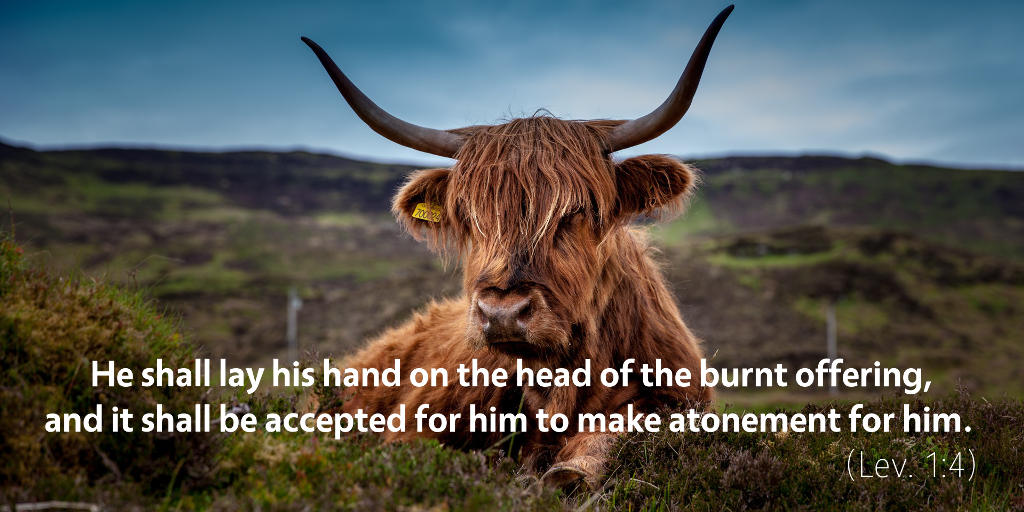Bible Readings for March 30th
Leviticus 1 | John 20 | Proverbs 17 | Philippians 4
Christians sometimes have a difficult time reading Leviticus. We tend to see Leviticus as a long book of rules that are entirely irrelevant to our lives, and then it becomes difficult to focus as we read yet another set of instructions on how to offer a sacrifice or seek purification for leprosy. If those rules don’t apply directly to Christians, why should we slog through this book?
The book of Leviticus actually has profound implications for understanding biblical theology. As we have seen throughout this study, the whole Bible proclaims to us how God has made a way to dwell with his people forever. But, if a holy God dwells with a sinful people, then he must ensure his consuming-fire holiness does not destroy his people in wrath.
While Leviticus is not the final answer about how God comes to dwell with his people, it is certainly one of the first parts of the answer. To put it another way, you cannot understand what Jesus came to do without understanding the theology of Leviticus.
So, Leviticus begins, in chapters 1–7, with instructions on how to offer sacrifices properly. Then, in chapters 8–10, the book moves into more instructions on the priesthood itself, capped off with the story of the death of Nadab and Abihu, the priest sons of Aaron who were struck down dead when they offered “unauthorized fire” (Lev. 10:1), profaning the holiness of Yahweh.
In chapters 11–22, the focus turns from the holiness of the sacrifices and the holiness of the priests to the holiness of individual people, with what kind of food the Israelites could eat, how a woman purifies herself after childbirth, how to deal with leprosy, diseases, and bodily discharges, what constitutes forbidden sexual relations, and which kinds of sacrifices Israel could offer to atone for their sins.
The last section of Leviticus, chapters 23–27, gives regulations for the nation as a whole, including the feasts that Israel was commanded to observe, the right ways to seek justice for the poor, and the significance of making and keeping vows. The climax of the book, in some ways, is in Leviticus 26, when Yahweh lays out the blessings he is setting before Israel for obedience as well as the curses he will bring against Israel if they disobey.
Leviticus isn’t a boring book of rules—it’s a drama with the highest possible stakes. If Israel walks in obedience, holiness, and purity, Yahweh promises blessings; if in disobedience, then Yahweh promises to pour out onto Israel the curses he had reserved for the nations. And yet, it is in the midst of Israel’s eventual failure—not their success—that Jesus makes his entrance into human history.
Leviticus illuminates the greatness of God’s holiness—and therefore the greatness of our sin—so that we can see the greatness of our Savior.
Podcast: Play in new window | Download (5.0MB) | Embed
Subscribe: Apple Podcasts | RSS | More

Scripture quotations are from The Holy Bible, English Standard Version copyright © 2001 by Crossway Bibles, a division of Good News Publishers. Used by permission. All rights reserved.


